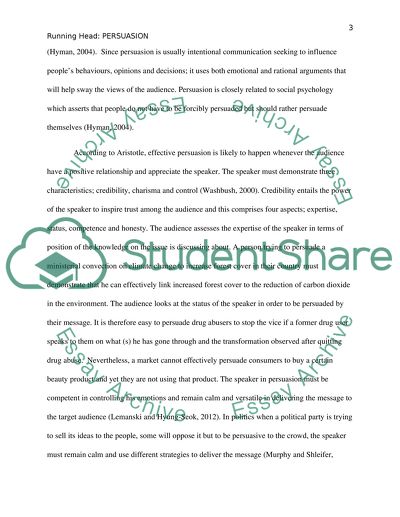Cite this document
(“Persuasion in Society Today Research Paper Example | Topics and Well Written Essays - 1250 words”, n.d.)
Persuasion in Society Today Research Paper Example | Topics and Well Written Essays - 1250 words. Retrieved from https://studentshare.org/psychology/1448012-persuasion-how-is-it-used-in-our-society-today
Persuasion in Society Today Research Paper Example | Topics and Well Written Essays - 1250 words. Retrieved from https://studentshare.org/psychology/1448012-persuasion-how-is-it-used-in-our-society-today
(Persuasion in Society Today Research Paper Example | Topics and Well Written Essays - 1250 Words)
Persuasion in Society Today Research Paper Example | Topics and Well Written Essays - 1250 Words. https://studentshare.org/psychology/1448012-persuasion-how-is-it-used-in-our-society-today.
Persuasion in Society Today Research Paper Example | Topics and Well Written Essays - 1250 Words. https://studentshare.org/psychology/1448012-persuasion-how-is-it-used-in-our-society-today.
“Persuasion in Society Today Research Paper Example | Topics and Well Written Essays - 1250 Words”, n.d. https://studentshare.org/psychology/1448012-persuasion-how-is-it-used-in-our-society-today.


